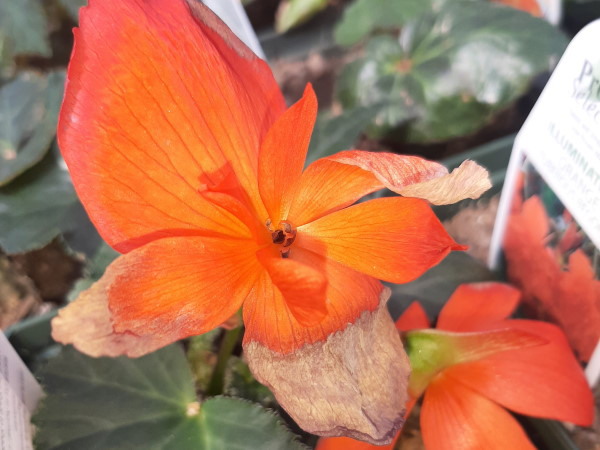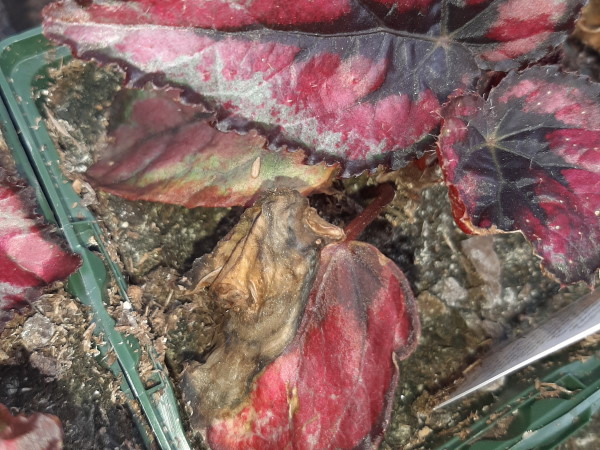Since it appears that the weather will shift back to the cool and rainy side over the next couple of days, it’s an opportune time to think about botrytis.
by Angela Madeiras, Extension Educator and Diagnostician, UMass Extension Plant Diagnostic Lab with Jim Mussoni, Private IPM Scout
Botrytis was observed last week on Coleus, Begonias and New Guinea Impatiens. To stay ahead of this troublesome disease, work to decrease humidity in the greenhouse... productive steps include increasing horizontal air flow, watering early in the day while avoiding wetting foliage as much as possible, and keeping plants as well spaced as possible. Resist the temptation to overfertilize.

Botrytis symptoms on begonia flower. Credit: Jim Mussoni
Protectant fungicide choices include fenhexamid, chlorothalonil, iprodione, pyraclostrobin + boscalid, and polyoxin D, among others. Incidentally, polyoxin D was recently added to the National List of allowed products for organic production (https://www.ams.usda.gov/rules-regulations/organic/national-list), so it’s National Organic Program (NOP) compliant but not yet Organic Materials Review Institute (OMRI) listed.

Botrytis symptoms on begonia foliage. Credit: Jim Mussoni
Certified organic alternatives include those containing Bacillus subtilis and Gliocladium catenulatum. Some products are labeled for use on edibles in the greenhouse while others are not - be sure to check the labels and follow directions.
